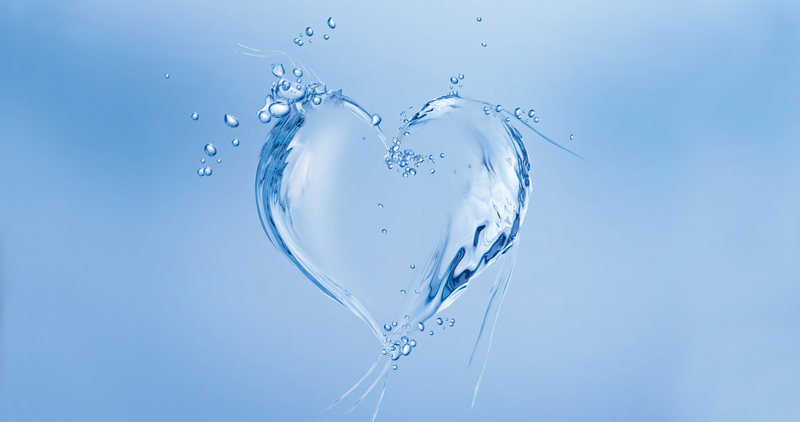Did you know that blood is 92% water, brain 75%, bones 22% and muscles 75%?
After the air, water is the next vital element: an adult is 60-70% water. We can survive with no food for about two months, but only a few days without water. Nevertheless, many people do not know how much water they should drink, and consequently they live in a constant state of dehydration. Actually, we also need water to breathe: our lungs must be moist in order to correctly absorb the oxygen and excrete the carbon dioxide.
We will list the 15 disorders we could have as a result of dehydration and discuss how to increase water consumption in order to avoid such disorders.
- Water is the most important energy source of the body. Dehydration slows down the enzymatic activity in the body which causes tiredness.
- Blood is 92% water when the body is perfectly hydrated. In case of dehydration, the blood gets thicker resulting in high blood pressure.
- When we are dehydrated, our body tries to preserve water, thus increasing the histamine level (which causes allergic reactions).
- Headaches are the most common symptoms for dehydration, this is why the mere action of drinking water can eliminate headaches and this is the first thing doctors recommend: it has no side effects and eliminates headaches with no drugs.
- Dehydration prevents toxin elimination through skin and makes it vulnerable to several local conditions: dermatitis, wrinkling and discoloration.
- When the body is dehydrated it will produce more cholesterol to prevent cells to lose water.
- The lack of water and alkaline minerals, such as calcium and magnesium may cause digestive disorders such as ulcer, gastritis and acid reflux, this is why calcic and magnesium mineral water can even be a prophylactic treatment.
- If you suffer from diabetes, water is all the more important: diabetics cannot process the sugar that is eliminated from the body at once with the water. This results in quick dehydration and may cause even more serious problems.
- In a dehydrated body, the accumulation of toxins and acidic waste creates an environment where bacteria grow and are stored in the bladder and then in kidneys. This is how the urinary tract infections occur and hence the related inflammation and pain.
- The colon is one of the first areas in the body that extracts water from food and drinks and then distributes them in the system. Fibres and water are essential to keep your colon healthy and avoid constipation.
- All joints contain water. When the body is dehydrated, the cartilages are weakened and the joint repair is slow resulting in pain and discomfort. Water consumption lubricates joints and thus muscle cramps are also eliminated.
- The (eye) cornea contains 80% water and the adequate hydration is important for a healthy vision.
- When the body is dehydrated and does not eliminate toxins, the toxins are deposited as fat cells that cannot be eliminated if hydration is not proper.
- In case of chronic dehydration, the important organs grow old, especially the largest organ: the skin wrinkles and spots occur on the skin.
- Proper water consumption helps us to lose weight. People who are trying to lose weight and are not hydrated, cannot process fats efficiently, and water retention causes weight gain. The surveys show that two glasses of water immediately after waking up and before having a meal accelerates metabolism, suppresses excessive appetite and helps to lose weight.
When and how do we drink water?
If you have no schedule for the minimum 8 glasses of water, it could be the following:
One-two glasses in the morning after waking-up
One glass every half an hour before having meals
Another glass half an hour afterwards
One glass before going to bed.
Taguri: aqua carpatica dehydration health hydration mineral water


Niciun comentariu